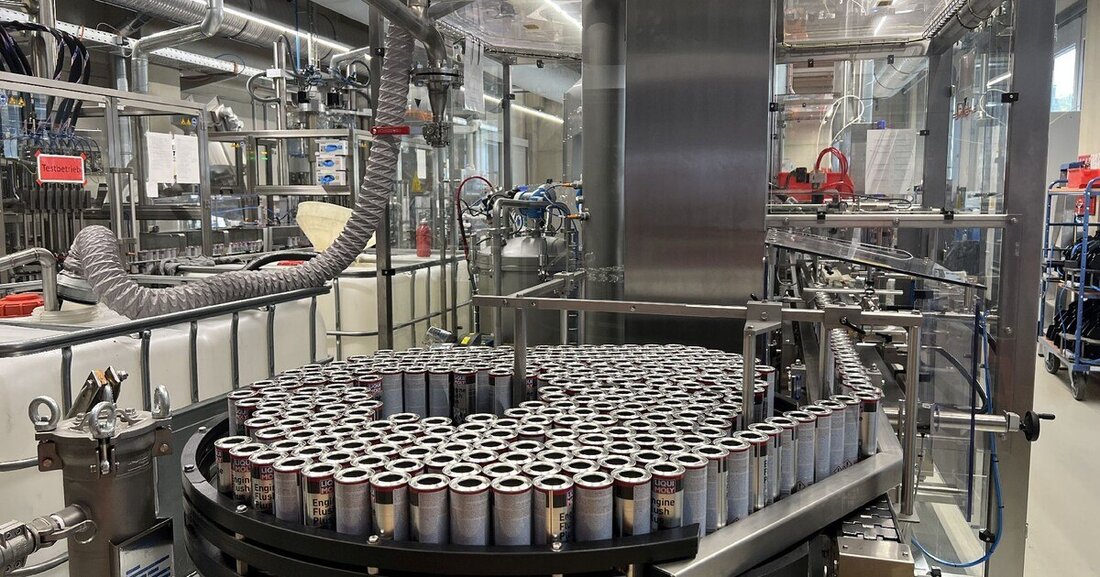Liqui Moly invests in additives
Lubricant manufacturer Liqui Moly is investing 8 million euros in expanding its additive production in Ulm.

Liqui Moly invests in additives
Liqui Moly managing directors Günter Hiermaier and Uli Weller opened the new building for the production of additives with three modern filling systems and additional office space. The new machines increase the maximum output from 346,000 cans per week to up to 481,000 cans. “The starting signal marks a milestone on our way to our common sales target of 1 billion euros,” said Hiermaier in front of representatives from politics, business, the media and the workforce. Liqui Moly invested 8 million euros in the newly opened additive production. Of this, 3.4 million euros are for the turnkey building. The costs for the three new bottling plants amount to 3.1 million euros. Conveyor technology and packaging robots cost 1.4 million euros. These machines will be fully installed and commissioned over the next year. Additives help engines burn fuel cleanly, emit fewer pollutants and last longer. They are useful prophylactically or as problem solvers. Liqui Moly develops all additives in Ulm and produces them there.
"These investments are a commitment to the Ulm location and therefore to Made in Germany. We are creating more jobs and giving people long-term prospects," says Günter Hiermaier. New machines do not mean fewer employees, but rather an increase in jobs in other areas because more is produced. And working conditions continue to improve. "Liqui Moly is a modern employer. People should and must feel comfortable with us. That is what we expect of ourselves," said the managing director. Therefore, in addition to the 400 square meters of production space spread over two floors, 200 square meters of space were created on the third floor for state-of-the-art offices. There are currently 408 people working at the company's headquarters in Ulm, and there are 1,093 people worldwide. Günter Hiermaier: "The 'small additive shop' with just 30 employees, where I started 33 ago, has become a company that will have generated sales of at least 800 million euros in 2022." Soon it will be 1 billion.
Even if the market in the EU is likely to change in the long term, the managing director sees immense growth potential: "Even after 2035, the majority of the vehicle fleet will be conventionally operated. Because the market for combustion engines continues to grow in parallel. This is often forgotten." According to a forecast by the consulting firm Frost & Sullivan, the increase in oil demand worldwide is even more pronounced. This assumes consumption will grow from 15.5 million tons in 2018 to up to 22 million tons in 2040. The trend continues to rise thereafter. "These calculations were made on the assumption that global sales of electric cars will account for 20 percent of all vehicles sold. That is one reason why we have modernized our additive production and increased capacities," says Günter Hiermaier. In exceptional years, 18 million cans ranging from 150 ml to 1 liter were filled using the existing machinery. In the future, around 25 million units will be possible.

 Suche
Suche
 Mein Konto
Mein Konto